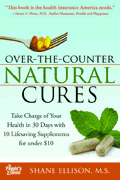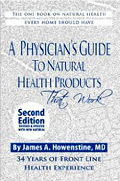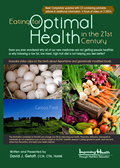NOBILETIN AND TANGERETIN OFFER POTENT NEUROPROTECTIN
By
Byron J. Richards, CCN
September 24, 2013
NewsWithViews.com
Protecting
the health of your brain and nerves is a top priority for maintaining
health as well as human ability. A wide range of nutrients are now found
to offer stellar assistance for healthy brain function. Research over
the past  decade,
and especially in the past few years, indicates that the citrus-derived
polymethoxy flavonoids nobiletin and tangeretin offer dynamic anti-stress
and anti-aging nerve support.
decade,
and especially in the past few years, indicates that the citrus-derived
polymethoxy flavonoids nobiletin and tangeretin offer dynamic anti-stress
and anti-aging nerve support.
Nobiletin and tangeretin came on the dietary supplement scene based on studies showing their metabolic benefits, including weight and cholesterol management. This early research has continued with many new metabolic studies. A recent review of the newer science shows that these citrus flavonoids prevent fatty liver, reduce cholesterol, improve insulin function, lower blood pressure, and have anti-inflammatory properties. Epidemiological studies link citrus flavonoid intake to a reduction in cardiovascular diseases. Recently they have been shown to stabilize immune cell signaling, reducing histamine and inflammatory signals TNFa and NF-kappaB. Inappropriate and inflammatory immune cell signaling is invariably involved with obesity, metabolic problems, and cardiovascular disease.
The scientific community is also quite excited about nobiletin and tangeretin as powerful protection for the nervous system, with a variety of studies indicating protection against mechanisms involved with Alzheimer’s and Parkinson’s disease. They also demonstrate rejuvenating properties within nerves, giving them anti-aging potential.
In Parkinson’s, damaged protein accumulation within dopamine neurons leads to steady decline and death of nerves. Tangeretin has been shown to stop the inflammation in neighboring glial cells (which is punching the dopamine neurons in the nose), activate the nerve rejuvenating compound BDNF to assist healing, turn on gene signals to help clean up damaged proteins, and assist directly in the survival of dopamine neurons. Another study showed that tangeretin directly helped the stressed-out endoplasmic reticulum, which is the main damaged protein recycling center for any cell. The study showed that doing so in dopamine neurons extended their life even when exposed to neurotoxins. And it is clear from animal studies that oral tangeretin intake crosses the blood brain barrier and accumulates in regions of the brain that contain dopamine neurons – helping to protect them.
Under stress, the energy-producing mitochondria in nerve cells must increase energy production to meet demands. At some point of intense demand the mitochondria overheat and lose the stability of their membrane. This causes an abnormal influx of calcium into the nerve cell and kills it. Nobiletin and tangeretin have been shown to stabilize nerve cell mitochondria membranes when under stress, preventing the adverse influx of calcium and preventing cell death. This is a powerful neuroprotective mechanism.
Since nerve cells do not split and divide in order to repair injury, as do other cells in your body, a very high priority is given to protecting and repairing them so that they last longer. The other option is to make new nerve connections by generating new nerve cells growth. As mentioned above, tangeretin has been shown to boost BDNF, which is an important growth factor enabling nerve cell growth activation. Another study has shown that nobiletin is also quite potent at activating gene signaling in a way to enhance new nerve growth. Of course, new nerve growth is the metabolic opposite of nerve degeneration associated with diseases of aging.
Under conditions of nerve duress nobiletin dramatically stabilizes nerve structures while boosting levels of BDNF to help with repair. A study of experimentally-induced stroke in animals found that nobiletin offered significant protection from the typical damage, while stabilizing the blood-brain barrier and boosting BDNF. Another study demonstrated that nobiletin corrected the stress-induced depression of BDNF that goes along with depression – showing that nobiletin is a potent brain rejuvenating nutrient.
Nobiletin has been found to activate gene signaling pathways within nerves that are associated with protection against dementia and cognitive decline.
The slow accumulation of beta-amyloid plaque begins in the mid-30s in most adults. As it accumulates cognitive ability and memory progressively decline. At some point a line is crossed which is defined as more serious cognitive impairment or Alzheimer’s disease. In an animal model of Alzheimer’s nobiletin was found to dramatically reduce the formation of beta-amyloid plaque leading the researchers to conclude that nobiletin “has potential to become a novel drug for fundamental treatment of Alzheimer’s disease.”
Tau proteins stabilize the micro-architecture of brain cells. Under stress they hyper-react, causing excessive formation of abnormal accumulations such as beta-amyloid plaque. In essence, brain cells are trying to recover from stress but do a poor job that actually makes matters worse. This is an underlying principle of cognitive decline and Alzheimer’s.
| Subscribe to the NewsWithViews Daily News Alerts! |
The latest study shows that nobiletin stabilizes tau protein function which reduces oxidative damage in the brain and improves cognitive impairment. The researchers state that “the markedly beneficial effects of nobiletin represent a potentially useful treatment for ameliorating the learning and memory deficits, oxidative stress, and hyperphosphorylation of tau in aging as well as age-related neurodegenerative diseases such as Alzheimer’s disease.”
The large body of new science on nobiletin and tangeretin indicate they have excellent protection for your nerves, helping you to tolerate stress better and accumulate less wear and tear that is associated with brain aging and cognitive decline. Interestingly, they help turn on gene signaling and growth factors that helps new nerve generation – a powerful anti-aging mechanism.
Since these nutrients also help metabolism and since poor metabolic health is associated with accelerated cognitive decline, these nutrients are of special importance to consider for any person who is overweight.
� 2013 Wellness Resources, Inc. - All Rights Reserved















 Share
This Article
Share
This Article








